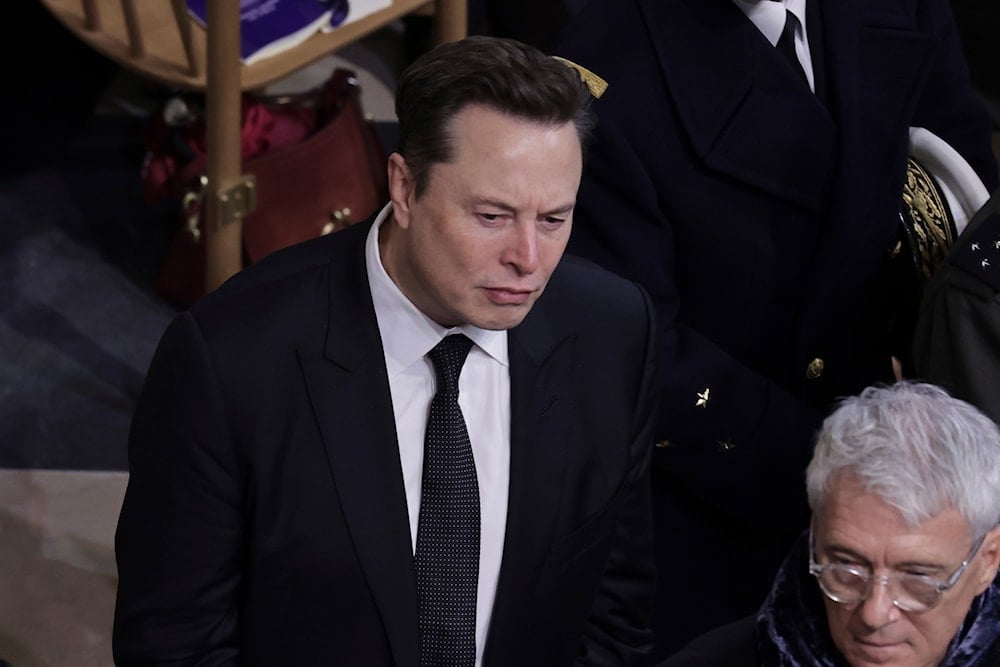Could Musk abuse his governmental position to target OpenAI?
A report by the Financial Times discusses Elon Musk's new governmental role and how the billionaire could leverage his position to target his competitors, precisely OpenAI.
-

Elon Musk attends the formal reopening of France's iconic Notre Dame Cathedral on December 7, 2024, in Paris. (AP)
Sam Altman, CEO of OpenAI, is grappling with an unpredictable challenge to his ambition of turning the startup into a trillion-dollar company, the Financial Times (FT) wrote on Sunday.
Since Donald Trump's election, OpenAI has been preparing for the new US administration, complicated by Musk’s growing influence as a confidant of the president-elect, FT wrote.
The report states that OpenAI, a rival to Musk, is trying to anticipate how he might leverage his position to target the company with new regulations or influence lucrative government contracts that could benefit his AI startup, xAI.
"I believe pretty strongly that Elon will do the right thing and that it would be profoundly un-American to use political power, to the degree that Elon has it, to hurt your competitors and advantage your own businesses," Altman said at a New York Times conference last week.
Moreover, FT reports that Trump has expressed confidence that Musk would prioritize national interest, while Musk, on his social media platform X, said rivals were "right" to expect him to be magnanimous.
"No one believes that for a second," said a lawyer who has clashed with Musk before.
'Musk could leverage his position'
Once close partners in founding OpenAI in 2015, Musk and Altman’s relationship has since declined.
Musk has referred to Altman as "swindly Sam" and filed lawsuits accusing him and OpenAI of "deceit of Shakespearean proportions" while seeking to void its multibillion-dollar partnership with Microsoft.
The Financial Times wrote, citing an investor in one of Musk's companies, that he could leverage his position as a central player in the incoming administration to boost xAI.
"The US government is the biggest employer in the US," the person said. "As [Musk’s] web of customers expands, does the government become a large customer [for xAI]?"
Reid Hoffman, a former OpenAI board member, speculated that Musk could use his position to hinder competitors to xAI.
"You could just do all of that kind of thing if you’re implementing government policy to try to privilege one company over others," he said, adding that it would be "frankly a very destructive thing to do. It’s destructive for the industry, it’s destructive for American society."
For now, OpenAI’s biggest challenge from Musk comes from direct competition from xAI, rather than political leverage, according to the Financial Times.

 3 Min Read
3 Min Read








